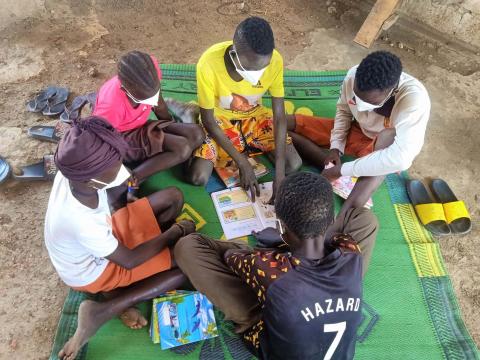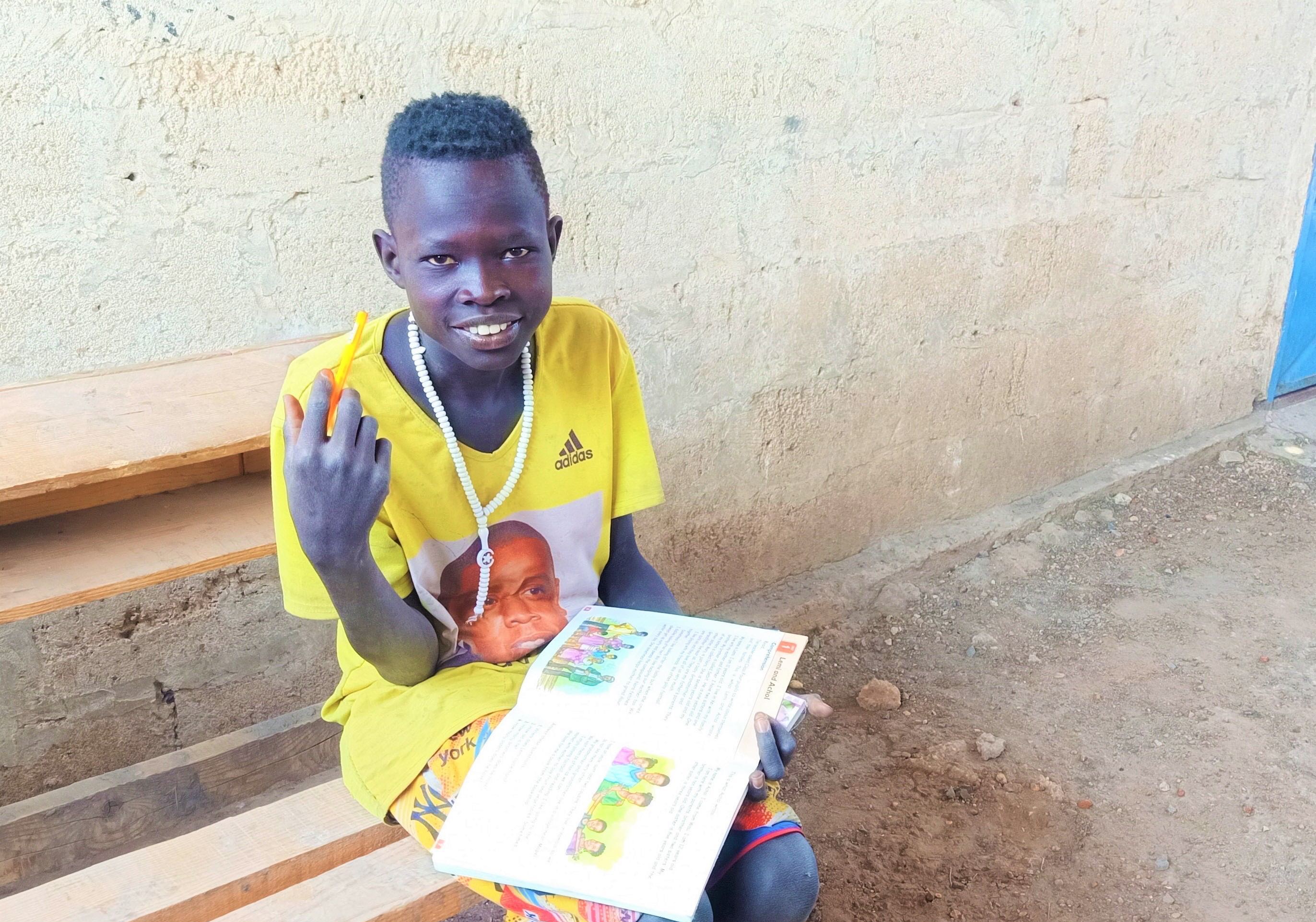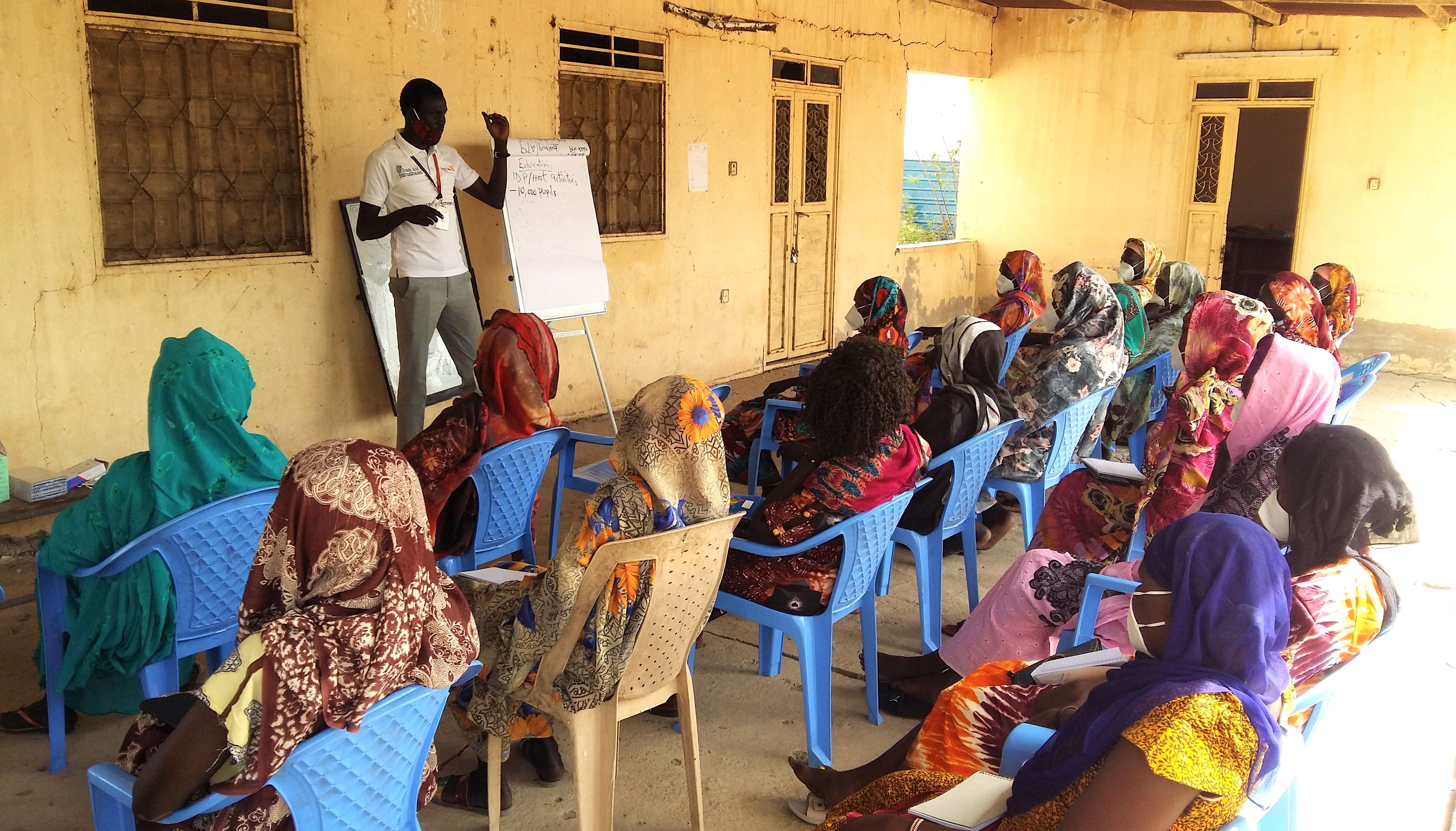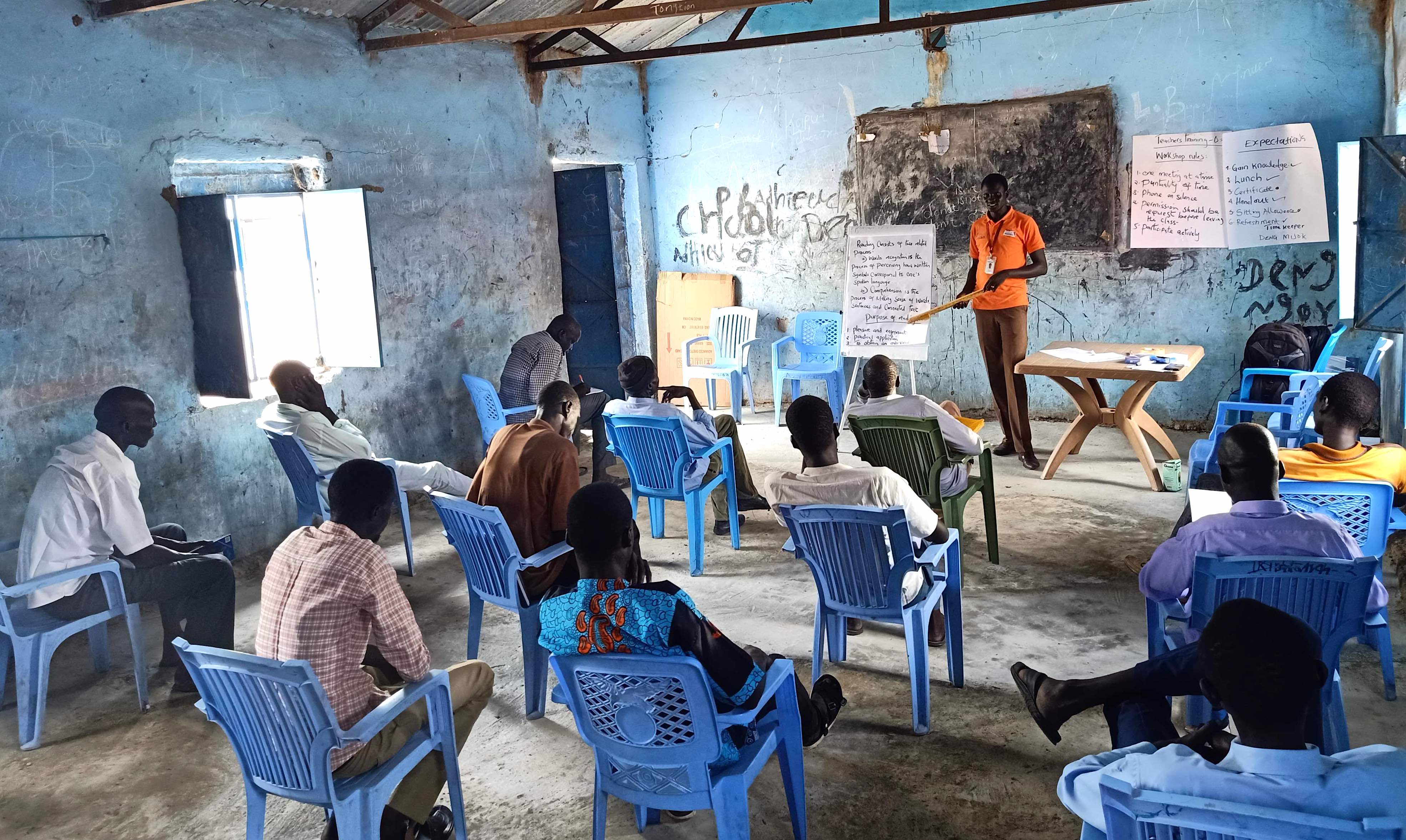Reviving children's hopes: Home-based distance-learning program amid COVID-19 in South Sudan

An estimated 3.4 million South Sudanese children, 51 percent of whom are girls, lack or have inadequate access to education services this 2021, according to UNOCHA report on humanitarian needs in South Sudan. This situation worsened with the impact of the COVID-19 in the country.
“Education is the only way my life will change for the better. With focus and determination, I will be successful in the future,” says 14-year-old, Miyen, a primary seven pupil living in Dingtoma internally-displaced camp. Miyen started his studies in Khorfulus County located in the eastern Nile part of the country before the South Sudan’s crisis in 2013. He fled with his parents and three siblings to Melut County and lived in the camp since then.
“While at the camp, my parents could not take proper care of us and our family needs like our education, food, and medicines when we got sick. My 32-year old mother and 40-year old father were always drunk of alcohol leaving us to fend for ourselves”, Miyen sadly says.

Miyen struggled from lack of proper parental care. It pained him to see his parents in that drunken state at all times. “Uncle Peter came to rescue me from that situation and took me in his care”, he adding, “I feel sad sometimes because my uncle also suffer from disability having lost one of his legs when he was young. But he did his best to help me.”
Regardless of his family background, Miyen has been excelling in his academics since he joined Dingtoma 2 IDP schools in primary two. According to their teacher Riak Diing, Miyen is kind, patient, and a dedicated child in class.
Education is an important vehicle for children’s bright future, especially those in remote villages with limited chances of getting exposed to modern technology. Being in school will help them avoid getting recruited into armed groups, forced into early marriages, especially the girls.
“Due to my good performance, the school management supported me with clothes, shoes, and free registration in the school as well”, Miyen proudly shares. With World Vision’s help in form of learning materials, Miyen resolved to work harder to achieve his dreams.
Miyen was disappointed when schools were closed due to the COVID-19 pandemic. “One year was wasted on playing around and fishing at the river. Life became even more difficult with lack of food ration as a result of the lockdown”, Miyen says.

Upon hearing about the home-based education program funded by the Irish Emergency Alliance, Miyen was among the first to be enrolled. “When my uncle and I heard the announcement, I rushed for the registration in the camp. I am excited about the idea and the opportunity to study again.”
Peter says, “Miyen is one of the very cooperative children I know, always focused and determined to learn”. Miyen says, “Education is power and improves people’s lives. It will make the community a better place for the children.”

“Education is an important vehicle for children’s bright future, especially those in remote villages with limited chances of getting exposed to modern technology. Being in school will help them avoid getting recruited into armed groups, forced into early marriages, especially the girls”, explains Frank Lomoro, National Education Coordinator.
Lomoro adds, “Sending their children to school are the parents’ only hope to be equipped with life skills. The lack of educational opportunities in South Sudan’s communities have resulted in vicious cycles of conflict, endless communal wars and poverty.”
Watch: Why is education important for a South Sudanese child?
Story by Abraham Choul, Education Officer I Photos by Abraham Chol and World Vision Team in Melut